CARICOM STANDS WITH CUBA Says Amb David Comissiong
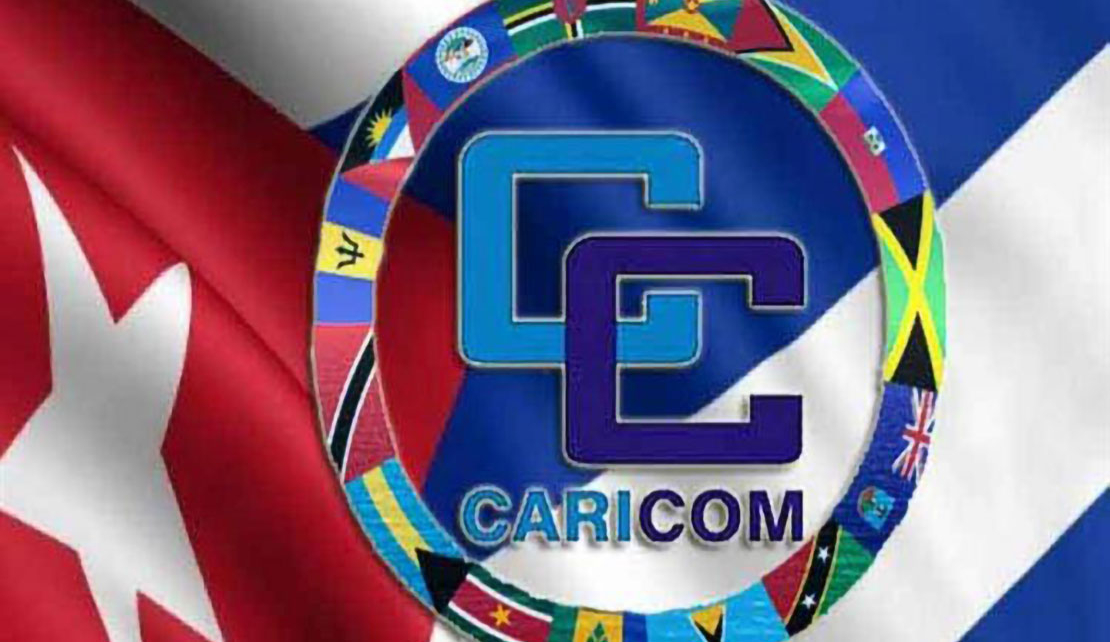
BRIDGETOWN, Barbados, February 6, 2024 - Despite the sixty year old economic blockade which has been placed on Cuba by the United States, in retaliation for the Fidel Castro led people’s revolution which overthrew the dictatorship of US backed Flugencio Batista, the countries that make up the Caribbean Community CARICOM, have developed a friendly, respectful, productive relationship with their Caribbean neighbour.
Barbados Ambassador to CARICOM, HE David Comissiong, in a recent interview with Teshia Hinds on ‘Morning' Barbados’ outlined the extent of Cuba’s relationship, not only with Barbados, but also with CARICOM as a whole.
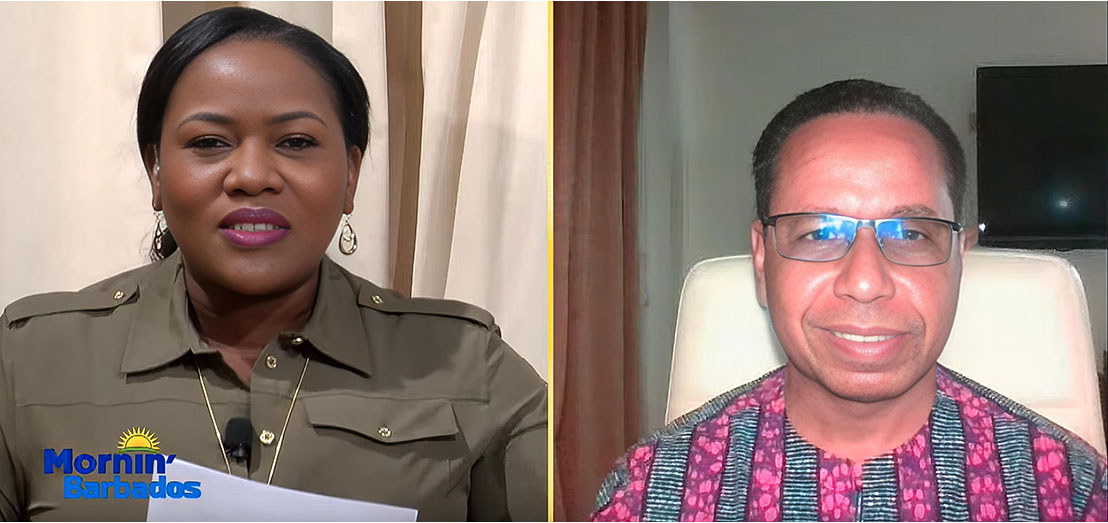
COMMISSIONG: “Caricom has a very special relationship with Cuba. Every single CARICOM country has an embassy in Cuba, and likewise, Cuba has an embassy in every single CARICOM member state. Thats very unique, you don't find that kind of relationship with any other country. Also, every three years, we have a Cuba-CARICOM summit where all the heads of government come together.”
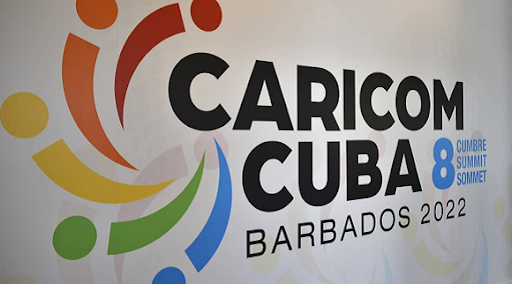 “Coming out of the last Summit, we established the joint Cuba Barbados Cooperation Agreement. This includes matters such as education, tourism, health, sports, agriculture and biotechnology, I find some of these areas very exciting as Barbados is in the process of establishing not just one life sciences park, but eventually several life sciences parks.
“Coming out of the last Summit, we established the joint Cuba Barbados Cooperation Agreement. This includes matters such as education, tourism, health, sports, agriculture and biotechnology, I find some of these areas very exciting as Barbados is in the process of establishing not just one life sciences park, but eventually several life sciences parks.
“Cuba has done very very well in the areas of genetic engineering and biotechnology, and when I was in Cuba I got to visit the Cuban centre for genetic engineering and biotechnology, and it was so exciting to know that they will be part of the building out of our Life Sciences Industry in Barbados.
“They have pioneered some cutting edge medications. In the health sphere we are very interested in their Heberprot-P . This is a drug that is used to treat diabetic ulcers which lead to amputation of the limbs, an affliction suffered by many Barbadians.
Right now, with the Ministry of Health, we are working on bringing Heberprot-P to Barbados, have it registered in Barbados so its available to Barbadians suffering from diabetic ulcer.
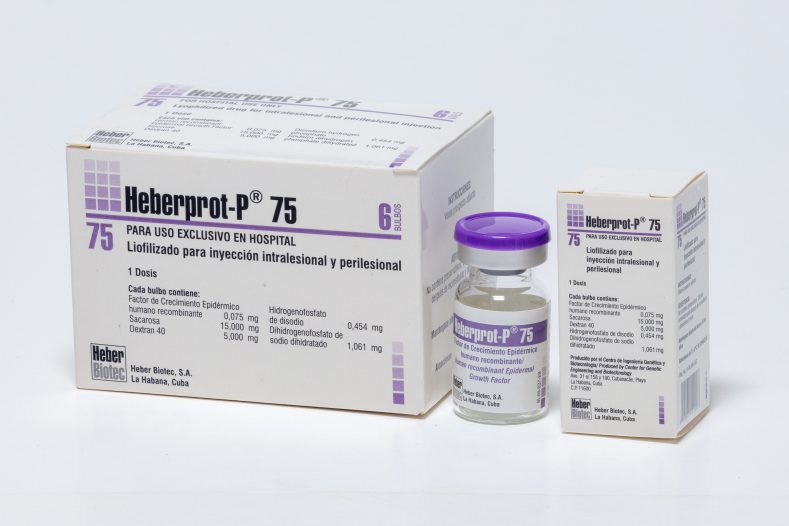
“Cuba has also developed a vaccine for lung cancer. One of the most inspiring things of my visit to Cuba was the visit to the Centre for Genetic Engineering and Biotechnology.
"The Cubans specialists explained, that if Cuba could only withstand this US economic blockade; and if this system of genetic engineering and biotechnology that Cuba has developed for itself can remain intact and remain on its present trajectory of producing new cutting edge treatments and medications, they are predicting that by the year 2050, cancer will no longer be a killer disease. Rather it will be chronic disease that can be treated with medications.
“That is the kind of scientific power-house that we have in the Caribbean. A lot of Cuba’s potential is being held back by the fact that they have to struggle with all of these sanctions from the United States.
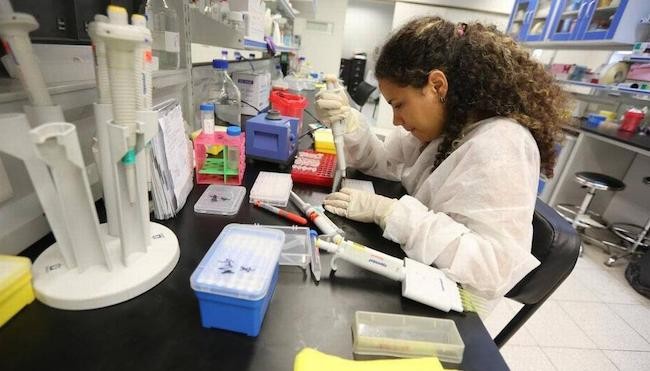
So we have Export Barbados and we have the division of foreign trade in the ministry of foreign affairs, working on trying to get Barbadian exporters to get their products into Cuba. However, the blockade is making it very difficult.
“We have problems getting transportation into Cuba, problems with foreign exchange to pay for the imports, and problems with late payments because of Cuban difficulty with the embargo, but we are forging ahead !”
“In the area of sports, we have had a collaboration with Cuba since 2003. We have eight disciplines from athletics to boxing, swimming and a host of disciplines where we have had Cuban coaches in Barbados for over twenty years.
“ The whole strategy of the blockade is that you make life as miserable as possible for the people and try to get the people to turn against their government. So that is what the Cubans are dealing with. ”
“In terms of the new agreement, we are going to help Cuba to develop Cricket, tennis and netball. We will be sending coaches to Cuba in these three areas. We have also agreed that in the sports of beach volleyball and basketball, we are gonna develop a special bilateral competition between Barbados and Cuba.
“There are many areas in which we are trying to cooperate with Cuba but we are doing it against the background of that US blockade that makes life very, very difficult for the Cuban people, and that's part of our diplomacy as well.
“We all in CARICOM continue to reach out to the United States government to say…look, this blockade is counterproductive, not only for Cuba but for all of us in the CARICOM area. Please, Please, remove it ! But so far, we have not been successful.
TESHIA HINDS : “Well tell us the ways you are able to reach out to share how CARICOM feels collectively about this blockade and how it's impacting Cuba’s progress. Is it only when you attend some of these international conferences; is it by correspondence that you send, or various meetings that are held…how is this communicated?
COMISSIONG: “CARICOM has tried everything: Our heads of government wrote a collective private letter to president Biden, explaining to him, very rationally, and very reasonably, why this blockade is anachronistic and why it needs to go. In addition, every year in the United Nations General Assembly, we vote in favour of the resolution condemning the Economic Blockade and calling on the United States to remove it.
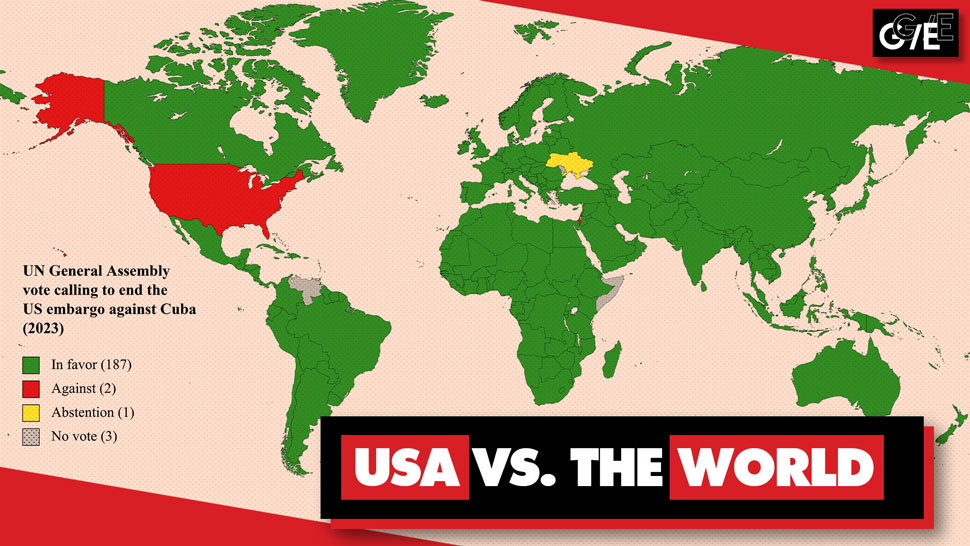
We have tried to share information as to why the blockade should be removed. For example, during the course of last year, I discovered that in 1975, the government of the United States, actually voted in the Organization of American States, to remove the OAS blockade against Cuba.
The US said the blockade was counterproductive, we are voting to remove this OAS Blockade, which the OAS has also imposed on Cuba in 1964, and in any case, it is the will of the majority of nations of this hemisphere, we don't need this blockade and the US actually voted to remove the OAS blockade and that was a Republican administration.
So I've been trying to share that information with the US Congresspeople and so forth, that in 1975, a Republican administration was able to vote to remove a blockade against Cuba. What is so difficult now in 2024?
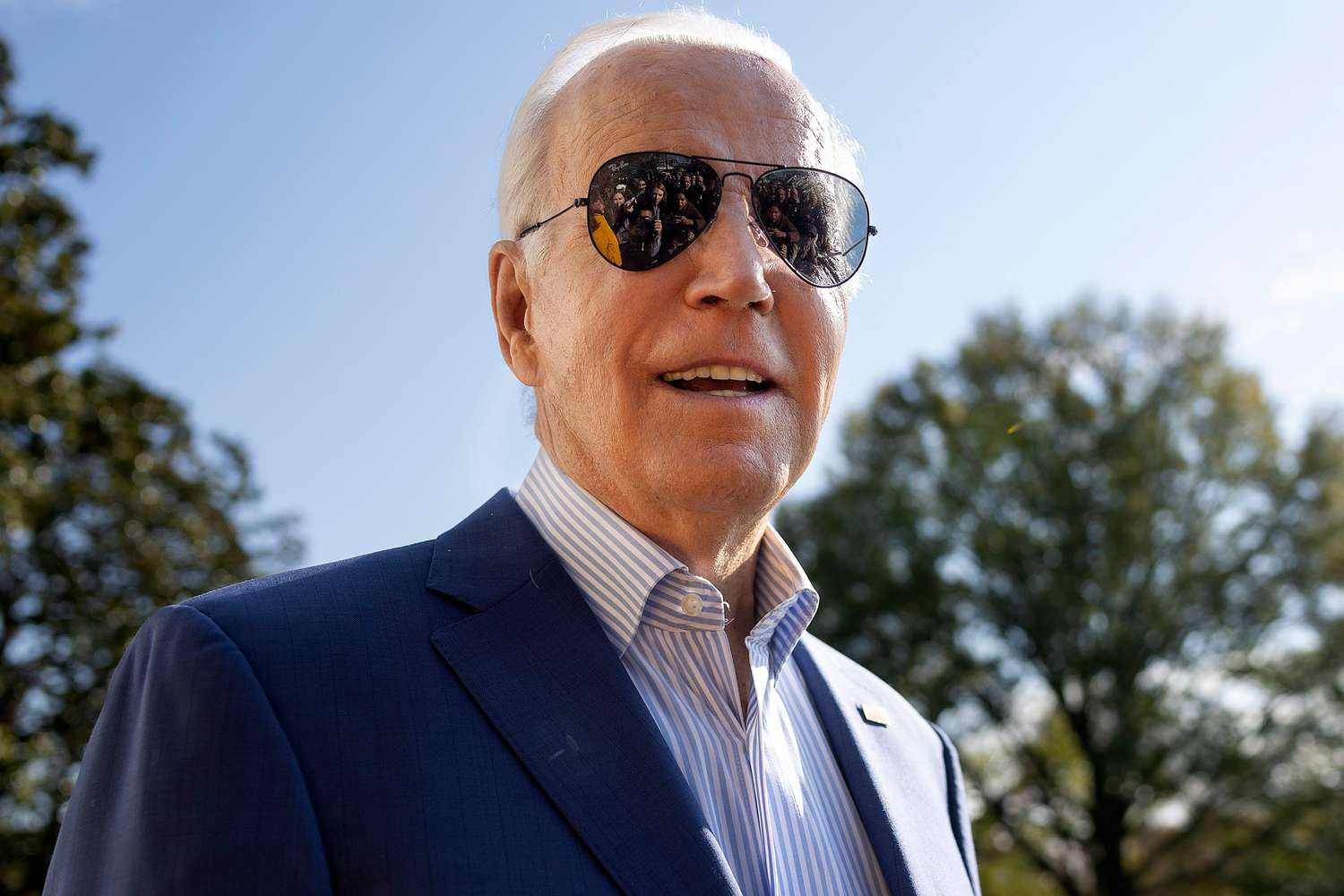
“ In 1975, the government of the United States, actually voted in the Organization of American States, to remove the OAS blockade against Cuba ”
We have to redouble our efforts to have these mutually beneficial relations with Cuba and somehow find our way around the blockade. So it's not that we can’t do it, it's just that the Blockade makes it a little more difficult to develop these relations with Cuba.
TESHIA HINDS: What's happening on the ground in Cuba though? I know you mentioned that there’s much talk about what's happening across the globe, is there any impact that they can see and how are they reacting to all that's happening in terms of what's happening in the Middle East and in Europe and things of that nature?
COMISSIONG: Cuba is struggling from the hardships arising from the blockade. You see it a lot in the transportation sector. Getting access to gasoline, sometimes vehicles have to line up to fill up that gas tank and yu see it with people on the streets waiting for public transportation.
“The whole strategy [ of the blockade] is that you make life as miserable as possible for the people and try to get the people to turn against their government. So that is what the Cubans are dealing with. But Cuba yu know is a well organised society, and its a society that has a sense of internationalism. So it is always i tune with what is happening internationally, and trying to play a constructive role in international affairs.
“So there’s lots of concern about Gaza; lots of solidarit with the Palestinian people.
“The reason I went was to be part of this conference where you had journalists who were brought from over thirty countries to discuss these kinds of international issues. Gaza kind of stole the show because everyone is very concerned about what is happening to the people of Palestine and all of the difficulties with making sure that propaganda does not rule the international media, fake news and that countries like Cuba, and countries that find themselves on the wrong side of these powerful western powers are not victimised through misinformation and propaganda.
“So the idea was how can all these 30 countries, how could the journalist and news sectors all work together to make sure that there is fairness and balance in news across the world.
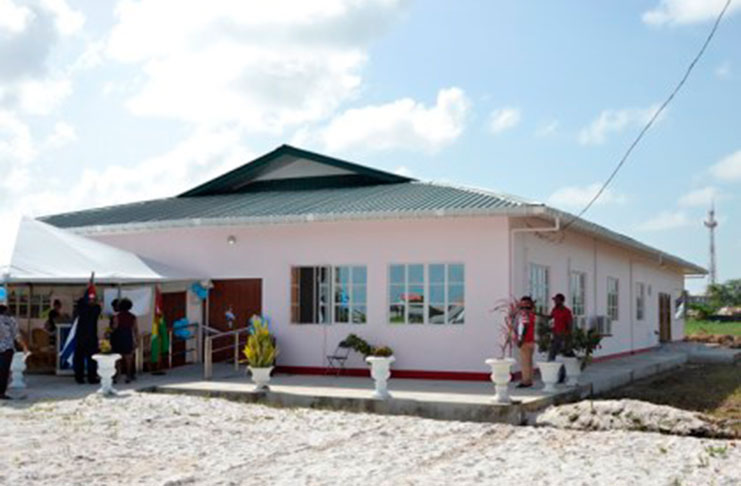
“ Cuba is also helping CARICOM with its major food security programme which is to reduce regional food imports by 25% by the year 2025 as a matter of policy. ”
“But yes, there is this very important educational institution that has been developed with Cuban technical expertise, its located in Guyana and it provides this very important service for our Caribbean region.
“In addition, Cuba is also helping CARICOM with its food security. Because as you know, we have this 25 by 25 food production project in CARICOM, and Cuba was invited to sit on the ministerial council that oversees that entire project. And so, not only is Cuba on the ministerial council, but Cuba is also playing a role in helping nus beef up our food production in CARICOM.
“Cuba is also working with CARICOM in establishing a Caribbean School of the Arts, and that is slated to be established in Jamaica.
“Those are just some of the critical areas that we continue to have collaboration on with Cuba as a region.
